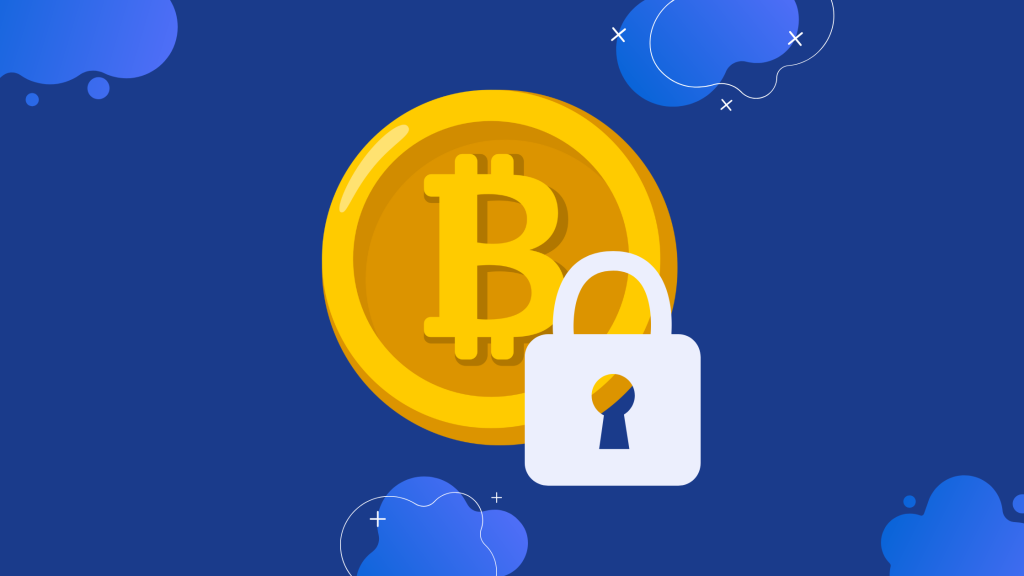Safeguard Your Assets With Unbreakable Cryptocurrency Security – Take Action Now!
Cryptocurrency Security: Ensuring the Safety and Protection of Your Digital Assets
Greetings, Readers!
Welcome to an informative article discussing the crucial topic of cryptocurrency security. In this digital era, where technology has revolutionized the way we conduct financial transactions, it is paramount to understand the importance of safeguarding our digital assets. With the rising popularity of cryptocurrencies such as Bitcoin, Ethereum, and Ripple, it becomes essential to explore the various aspects of securing these virtual currencies. Join us as we delve into the world of cryptocurrency security, its significance, and the measures one can take to protect their investments.
2 Picture Gallery: Safeguard Your Assets With Unbreakable Cryptocurrency Security – Take Action Now!


Introduction
Cryptocurrency security refers to the practices and strategies employed to protect digital assets, including cryptocurrencies and blockchain-based technologies, from unauthorized access, theft, and other cyber risks. The decentralized nature of cryptocurrencies makes them susceptible to potential vulnerabilities, making it crucial for users to adopt robust security measures.
1️⃣ What is cryptocurrency security?
Cryptocurrency security encompasses the processes and technologies aimed at safeguarding digital assets stored in digital wallets or exchanged through blockchain networks. This involves protecting private keys, implementing secure storage solutions, and utilizing encryption techniques to prevent unauthorized access.

Image Source: blockchain-council.org
2️⃣ Who is responsible for cryptocurrency security?
The responsibility for cryptocurrency security primarily lies with individual users. As decentralized systems, cryptocurrencies eliminate the need for intermediaries like banks. This places the burden of protecting digital assets solely on the owners. Additionally, cryptocurrency exchanges and wallet providers also play a crucial role in implementing security measures to protect user funds.
3️⃣ When should one prioritize cryptocurrency security?
It is essential to prioritize cryptocurrency security from the moment you begin engaging with digital assets. Whether you are a seasoned investor or a beginner exploring the world of cryptocurrencies, adopting secure practices and implementing robust security measures should be an integral part of your cryptocurrency journey.
4️⃣ Where can one apply cryptocurrency security measures?

Image Source: bitpay.com
Cryptocurrency security measures can be implemented across various aspects of the digital asset ecosystem. This includes securing digital wallets, employing two-factor authentication (2FA), utilizing hardware wallets, ensuring secure internet connections, and conducting thorough research before engaging with cryptocurrency exchanges or Initial Coin Offerings (ICOs).
5️⃣ Why is cryptocurrency security crucial?
The decentralized and pseudonymous nature of cryptocurrencies presents unique security challenges. Without the protection provided by traditional financial institutions, users must take proactive measures to safeguard their digital assets. Failure to prioritize cryptocurrency security can result in financial losses, identity theft, and other detrimental consequences.
6️⃣ How can one ensure cryptocurrency security?
There are several measures individuals can take to enhance cryptocurrency security. These include utilizing hardware wallets, practicing safe browsing habits, regularly updating software, implementing multi-signature wallets, conducting due diligence on cryptocurrency projects, and staying vigilant against phishing attacks and scams.
Advantages and Disadvantages of Cryptocurrency Security
Advantages:
1. Enhanced Privacy: Cryptocurrencies offer a level of privacy that traditional financial systems cannot match. With cryptographic techniques, users can transact securely without revealing their identities.
2. Increased Control: Cryptocurrency security allows users to have complete control over their funds. With private keys and digital wallets, individuals can manage their assets without relying on third-party intermediaries.
3. Global Accessibility: Cryptocurrencies operate on a borderless network, enabling individuals worldwide to access and transact with digital assets. This fosters financial inclusion and empowers individuals who lack access to traditional banking systems.
Disadvantages:
1. Volatility: Cryptocurrencies are known for their price volatility, which can result in significant financial losses. The decentralized and speculative nature of these assets makes them susceptible to market fluctuations.
2. Regulatory Concerns: The lack of regulatory oversight in the cryptocurrency space presents challenges and uncertainties. The absence of a standardized framework can expose users to potential risks, including fraudulent schemes and illegal activities.
3. Irreversible Transactions: Once a cryptocurrency transaction is confirmed on the blockchain, it becomes irreversible. This lack of reversibility can be problematic in instances of accidental transfers or fraudulent activities.
Frequently Asked Questions (FAQs) about Cryptocurrency Security
1️⃣ Is it safe to store cryptocurrencies in digital wallets?
Yes, storing cryptocurrencies in digital wallets can be safe if proper security measures are implemented. Utilizing hardware wallets or cold storage solutions can enhance the security of your digital assets.
2️⃣ Are cryptocurrency transactions traceable?
Cryptocurrency transactions are recorded on public ledgers called blockchains, which can be viewed by anyone. However, the identities of users involved in these transactions are often pseudonymous, providing a certain level of privacy.
3️⃣ How can I protect my digital assets from hacking attempts?
To protect your digital assets from hacking attempts, it is important to utilize secure passwords, enable two-factor authentication (2FA), regularly update software, and avoid clicking on suspicious links or downloading unknown files.
4️⃣ What should I do if my cryptocurrency is stolen?
If your cryptocurrency is stolen, you should immediately report the incident to the relevant authorities and provide them with all the available information. Additionally, you should inform the relevant cryptocurrency exchange or wallet provider to take appropriate action.
5️⃣ Can I recover my lost cryptocurrency?
Recovering lost cryptocurrencies can be challenging due to the irreversible nature of blockchain transactions. However, it is advisable to seek professional assistance and explore potential recovery options.
Conclusion
In conclusion, cryptocurrency security is a paramount concern in the digital asset landscape. By understanding the various aspects of cryptocurrency security and adopting robust measures, individuals can protect their digital assets from potential risks and vulnerabilities. Whether you are a cryptocurrency enthusiast or someone venturing into the world of digital assets, prioritizing security is key to safeguarding your investments.
Take charge of your cryptocurrency security today and embark on a secure and rewarding digital asset journey!
Disclaimer: The information provided in this article is for informational purposes only. It does not constitute professional advice. Readers are advised to conduct further research and seek professional guidance before engaging in any cryptocurrency-related activities.
This post topic: Blockchain Insights

